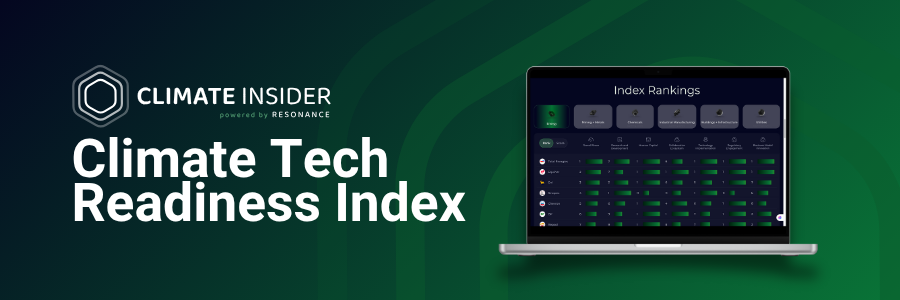Welcome to Climate Tech Pulse, your daily dose of market intelligence helping fuel the fight against climate change. From groundbreaking investments to cutting-edge research, we’re bringing you the latest in climate tech that’s shaping our future.
Don’t miss out on tomorrow’s climate solutions – subscribe now to stay ahead of the curve! https://lnkd.in/dwr7B9XJ
Today’s newsletter:

🌳 Today’s Top Story: EU has issued its first ever regulation to reduce methane emissions – EU 2024/1787.
🌳 Today’s Data Point: Canada’s Battery Innovation Roadmap showcases data around battery demand.
🌳 Climate Insider Intelligence: Climate Insider did an exclusive interview with Max Welling, Co-founder of CuspAI.
EU for Methane Crackdown: EU Issues its First Ever Regulation to Reduce Methane Emissions
Image Credit: European Commission
Introduction of the Methane Regulation
On July 15th, 2024, the European Union introduced EU 2024/1787, its first regulation targeting methane emissions. This new law sets strict standards for methane emissions from fossil fuel operations across all EU Member States. It also includes stringent requirements for imports from oil, coal, and natural gas exporters, ensuring control across the entire supply chain.
Challenges and Importance of Methane Regulation
Methane, a potent greenhouse gas, has become a major climate concern, with emissions in the EU fluctuating over the years. The oil and gas sector is a significant contributor, often underreporting its emissions. The new regulation aims to address these issues by closing gaps in previous laws and enforcing stricter controls to better manage methane emissions.
Global Impact and Expert Insights
The EU’s regulation aims to reduce methane emissions from fossil fuel operations by 35% by 2030. Experts emphasize its significance as a blueprint for global climate change mitigation efforts. Leveraging advanced monitoring technologies, this regulation establishes a new benchmark for transparency and accountability, fostering international collaboration. Read More
Quote of the Day
“The EU’s adoption of the Methane Emissions Regulation is significant progress towards slowing down climate change. It’s an ambitious and ground-breaking regulation that sets comprehensive standards that address methane emissions across the entire energy supply chain.”
Flavia Sollazzo’s quote signifies the EU’s methane regulation as a major step forward in global climate efforts, emphasising its comprehensive approach to tackling methane emissions throughout the energy supply chain. This regulation sets a new standard for international climate policies, marking a critical and ambitious move toward mitigating climate change.
Market Movers
Image Credit: General Fusion
This section highlights key investments and initiatives driving progress in sustainability and climate innovation.
- China plans to add two new project types to its voluntary carbon market under the China Certified Emission Reductions framework. The Ministry of Ecology and Environment is consulting on methodologies for issuing carbon credits to coal mine gas and energy-efficient highway tunnel lighting projects, which could generate 4.8 million tons of CO2 credits annually. Read More
- Standard Chartered’s US$235 million green loan will fund a major solar PV manufacturing plant in Texas, marking one of the first non-recourse solar financing deals in the U.S. and creating 1,500 jobs. Read More
- General Fusion, a fusion company based in British Columbia, announced nearly $15 million in new funding to advance the development of its Lawson Machine 26 (LM26) demonstration device, a key step toward achieving technical milestones in fusion energy and addressing critical challenges in the pursuit of clean energy. Read More
- Malaysia-based retirement fund Kumpulan Wang Persaraan (Diperbadankan) (KWAP) is reinforcing its commitment to sustainable investment by pledging to increase its focus on transition assets to MYR 20 billion ($4.45 billion). Read More
Tech Spotlight
Have you ever wondered how nanotechnology could revolutionise clean energy?
Recent research into nanoscale covalent organic frameworks (nano-COFs) reveals their incredible potential to advance photocatalytic hydrogen production.
Image Credit: Wei Zhao
Recent study, published in the journal Nature Communications, examines the synthesis and performance of nano-COFs, showing a way for stronger, more efficient and sustainable hydrogen solutions.
Commercial Viability
- Nano-COFs offer high hydrogen evolution rates, positioning them as promising for commercial hydrogen production.
- Scalability and cost of production need further development for widespread market adoption.
Technical Viability
- Nano-COFs, including TFP-BpyD and TFP-BD, demonstrate high photocatalytic performance with a rate of 392.0 mmol g−1 h−1.
- The reverse concentration-dependent phenomenon and improved light-harvesting properties enhance their technical effectiveness.
Environmental Viability
- Nano-COFs improve photocatalytic efficiency, potentially leading to more sustainable hydrogen production.
- Enhanced performance and lower catalyst concentrations contribute to reduced environmental impact.
Why it Matters: This research is significant as it advances photocatalytic hydrogen production by showing that nanoscale covalent organic frameworks (nano-COFs) can achieve exceptionally high hydrogen evolution rates and improved efficiency. The discovery of the reverse concentration-dependent phenomenon challenges conventional practices and provides new insights into optimizing photocatalytic materials. Ultimately, nano-COFs could play a vital role in developing more sustainable and effective clean energy solutions. Read More
Policy Pulse
The week saw major announcements and deals when it comes to climate policy and net zero goals.
Abu Dhabi is emerging as a new hub for climate tech.
Abu Dhabi, while remaining deeply tied to its oil wealth, is investing in climate tech startups to address the climate crisis. For example, its tech ecosystem Hub71 launched a new program to support decarbonization technologies, featuring five startups working on solutions across various sectors, including energy and aquaculture.
Why it Matters: Abu Dhabi’s investment in climate tech through Hub71 highlights its commitment to diversifying its economy beyond oil by supporting startups focused on sustainable innovations. This initiative not only aligns with the UAE’s goal to achieve net zero carbon emissions but also positions Abu Dhabi as a key player in the global climate tech sector, fostering advancements in areas like hydrogen production and carbon reduction technologies. Read More
The U.S. Department of Energy grants Duke Energy’s project $57 million in cost-share funding to strengthen North Carolina’s energy grid.
The funding is part of the DOE’s Grid Resilience and Innovation Partnerships (GRIP) program, supporting grid infrastructure through the Bipartisan Infrastructure Law. The initiative aims to reduce outages, connect more clean energy sources, and enhance grid resilience, benefiting local communities and creating job opportunities.
Why it Matters: The $57 million funding for the North Carolina Innovative Transmission Rebuild project is crucial for enhancing grid reliability, integrating clean energy sources, and supporting local economic growth. It will improve power system resilience, reduce outages, and create approximately 550 jobs, demonstrating a significant investment in both infrastructure and community development. Read More
EC Approves €750 million Dutch Aid Program for Industrial Decarbonization
The European Commission has approved a €750 million Dutch aid scheme to support investments in industrial decarbonization, aiming to cut greenhouse gas emissions by at least 40% and drive the Netherlands toward a net-zero economy.
Why it Matters: The €750 million Dutch State aid scheme is crucial for the Netherlands’ net-zero transition, as it provides grants to companies that cut industrial emissions by at least 40% through process electrification, helping to meet CO₂ reduction targets. Read More
Today’s Climate Data Point
Canada’s Battery Innovation Roadmap showcases data around battery demand.
Image Credit: Canadian Battery Innovation Roadmap
Key Data Points:
- Global Forecast (2020-2035): Significant growth in battery demand across e-buses, commercial EVs, and passenger EVs.
- Canada’s Production Capacity: Aiming for 195 GWh in battery production with $46 billion in investments by mid-2024.
- Global Competition:
- China: 70% domestic content by 2025.
- U.S.: 60% domestic demand by 2030.
- EU: 90% domestic demand by 2030.
- Innovation: Targets for next-gen batteries, aiming for 500 Wh/kg energy density.
- Canada’s Potential: Positioned to be a leader in clean battery tech by 2035. Read More
Climate Insider Intelligence: Exclusive Interview with Max Welling, Co-founder of CuspAI
Discover how CuspAI is harnessing the power of AI to revolutionise materials discovery and combat climate change.
Max Welling highlights several key insights:
- CuspAI’s advanced ‘search engine for materials’ is significantly speeding up the discovery of innovative and sustainable materials.
- The potential of AI-driven materials discovery could revolutionise various industries, including carbon capture and clean energy production.
- Effective collaboration between domain experts and AI specialists is essential for addressing major global challenges.
- Founders working at the intersection of AI and climate should maintain a mission-driven approach and cultivate robust partnerships.








